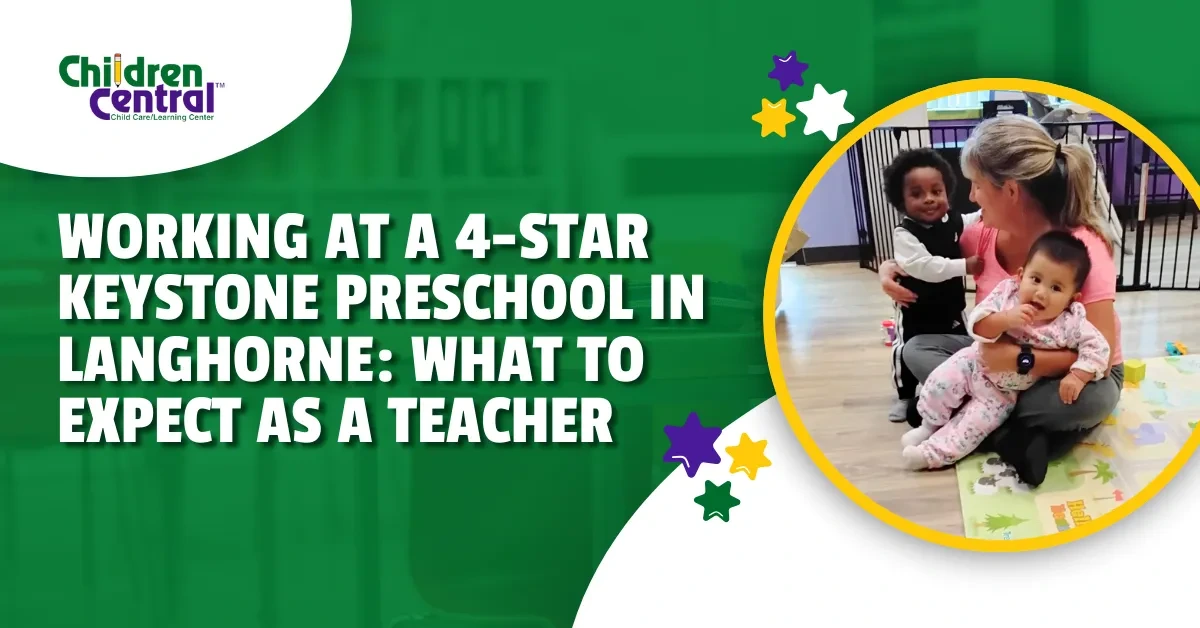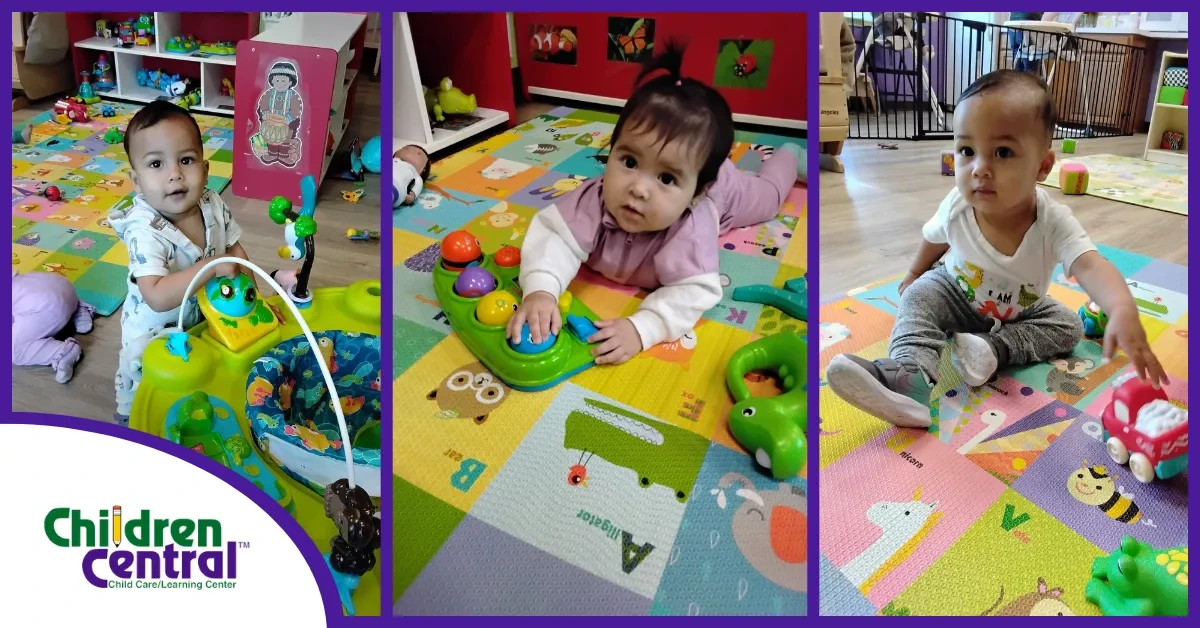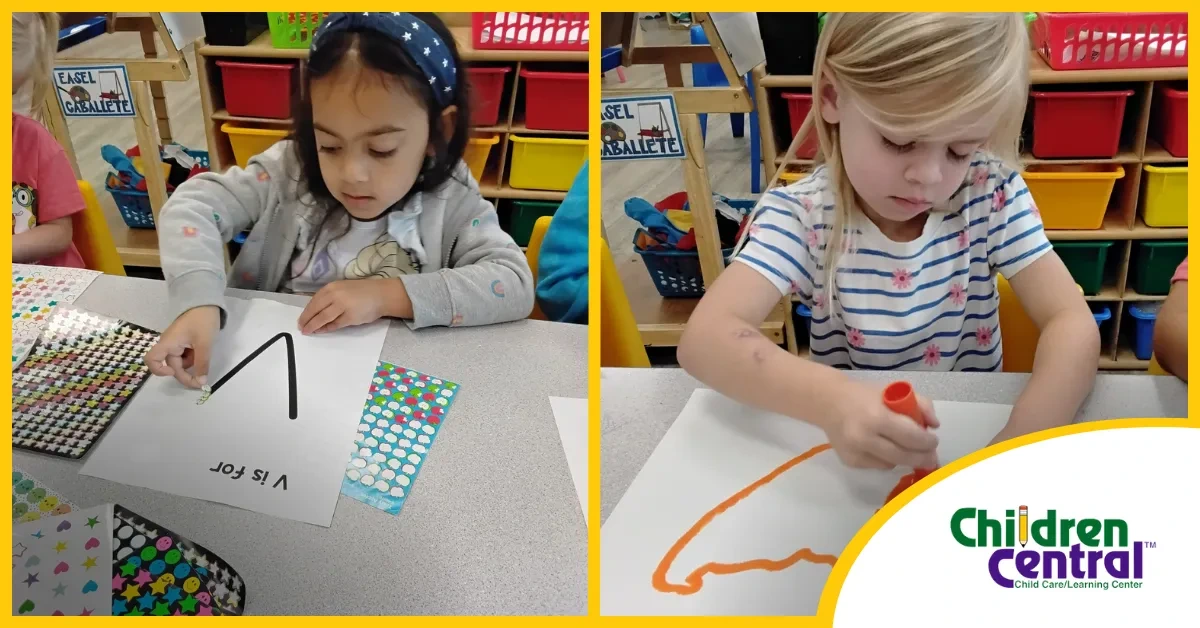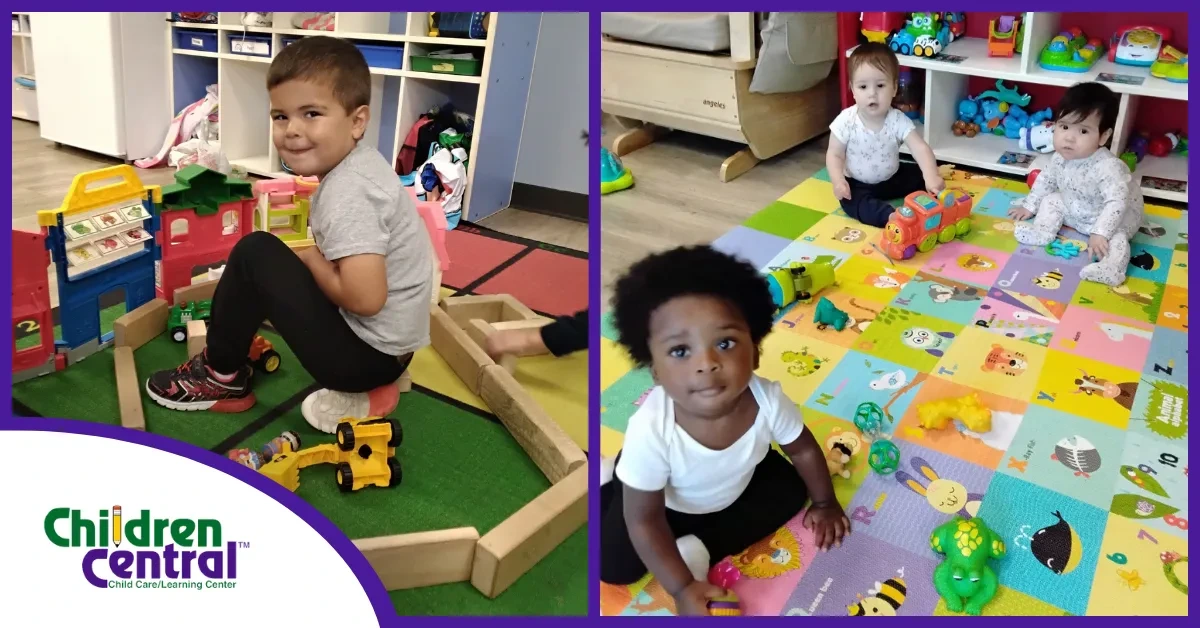
Preschool teacher jobs in Langhorne, PA, place educators in classrooms that meet Pennsylvania’s Keystone STARS 4-Star standards for safety, learning, and family partnerships. Teachers can expect a research-based curriculum aligned with the PA Early Learning Standards, purposeful lesson planning, and assessments that inform instruction. Daily practice emphasizes nurturing relationships, consistent routines, small teacher-child ratios, and positive behavior support.
Collaboration with co-teachers and families is central, supported by clear communication and scheduled conferences. Ongoing professional development, coaching, and strict adherence to health, sanitation, and licensing requirements create a structured, child-centered environment where educators can grow while helping children thrive.
Childcare Careers in Langhorne: Roles, Qualifications, and Fit

Educators pursuing childcare careers in Langhorne will find purposeful opportunities in Keystone STARS 4-Star classrooms, prioritizing safety, responsive care, and evidence-based instruction. Teams are collaborative, expectations are clear, and family partnerships guide decisions. Success rests on a blend of credentials, compliance, and professional dispositions that support each child’s growth.
Core Roles
- Lead Teacher: Designs lesson plans aligned with the PA Early Learning Standards, manages assessment cycles, and mentors assistants.
- Assistant Teacher: Delivers small-group instruction, maintains routines, and supports documentation and family communications.
- Floater/Substitute: Maintains ratios, facilitates transitions, and preserves continuity of care across age groups.
- Support Staff (as applicable): Helps with meal service, sanitation, materials prep, and center safety checks.
Qualifications and Clearances
- Education: CDA or college coursework in Early Childhood Education; AA/BA preferred for lead roles.
- Training: Pediatric First Aid/CPR, health and safety, and mandated reporter training.
- Compliance: Pennsylvania state-required background checks and medical/TB documentation.
- Professional Development: Ongoing hours tied to Keystone STARS quality goals, with coaching and reflective practice.
Skills and Dispositions
- Instructional Practice: Center-based learning, intentional scaffolding, and developmentally appropriate guidance.
- Observation and Assessment: Anecdotal notes, portfolios, and data-informed adjustments to meet individual goals.
- Family Partnership: Clear daily updates, respectful conferences, and culturally responsive communication.
- Classroom Management: Predictable routines, proactive behavior supports, and calm de-escalation.
Is This a Good Fit?
- You value a child-centered, standards-aligned environment and welcome coaching and feedback.
- You thrive in a team culture that balances structure with creativity and emphasizes health, safety, and cleanliness.
- You communicate professionally with families and colleagues, accurately handle documentation, and maintain confidentiality.
- You are committed to inclusion, recognize diverse learning needs, and collaborate with specialists when needed.
A strong candidate brings reliable professionalism, warmth, and a growth mindset. In Langhorne’s high-quality programs, including Keystone STARS 4-Star preschools, these qualities translate into consistent, developmentally appropriate experiences that help young children build confidence, curiosity, and school readiness.
Keystone STARS Preschool Jobs: Standards and Classroom Expectations

Keystone STARS preschool jobs operate within a statewide quality framework that promotes safe, engaging, and inclusive learning. Programs structure practices around four domains: Staff Qualifications and Professional Development, Learning Program and Continuous Quality Improvement, Partnerships with Families and Communities, and Leadership and Management. Each domain sets clear performance standards and documentation requirements that guide daily classroom decisions.
Classroom Expectations
Teachers maintain predictable routines, developmentally appropriate activities, and responsive interactions that nurture social, emotional, cognitive, and physical growth. Expectations include:
- Consistent schedules with smooth transitions and visual supports.
- Small-group instruction and purposeful learning centers that promote choice and independence.
- Positive behavior guidance grounded in clear expectations, modeling, and restorative problem solving.
- Inclusion practices that scaffold access for every child.
Curriculum and Assessment
Instruction aligns with the Pennsylvania Early Learning Standards and follows a vetted curriculum with fidelity. Planning and assessment are integrated into daily practice:
- Weekly lesson plans with intentional objectives, adaptations, and center rotations.
- Ongoing observation notes, child portfolios, and periodic screeners to monitor progress.
- Data reviews that inform small-group targets, individualized goals, and family-friendly progress updates.
- Use quality tools like environment and interaction measures to reflect on classroom practice.
Health, Safety, and Learning Environment
The physical environment supports exploration, independence, and safety. Classrooms are organized into labeled interest areas with accessible, culturally responsive materials. Teachers uphold:
- Daily sanitation logs, safe food handling, and allergy management protocols.
- Ratio and supervision standards with clear sightlines and active engagement.
- Emergency readiness with practiced drills and readily available first aid supplies.
Family Partnerships
Communication with families is consistent, respectful, and solution-oriented. Teachers provide daily updates, share portfolio artifacts, and schedule conferences, translating data into practical strategies. Programs connect families with community resources and invite participation in classroom events and quality improvement feedback.
Professional Culture and Coaching
Ongoing professional development, reflective coaching, and peer collaboration sustain quality. Staff complete required trainings, pursue credentials, and participate in continuous improvement cycles. Leadership supports protected planning time, clear procedures, and timely resources so teachers can maintain high standards with confidence and care.
Working at a 4-Star Daycare: A Typical Day and Teaching Rhythm

Working at a 4-Star daycare follows a steady rhythm that supports security, exploration, and meaningful learning from arrival to dismissal.
Arrival and Transitions
Teachers greet each family, complete brief health checks, and guide sign-in procedures. Visual schedules, name labels, and clearly marked centers promote independence. Children begin with choice time while staff monitor ratios, observe social interactions, and scaffold smooth transitions to whole-group learning.
Instructional Blocks
The morning meeting builds community, language, and executive function. Small-group rotations target literacy, math, and inquiry with hands-on materials and intentional vocabulary. Centers extend concepts through purposeful play, like blocks, dramatic play, art, literacy, and STEM, while teachers circulate to model problem-solving and capture anecdotal notes for portfolios.
Health, Safety, and Care Routines
Care routines teach self-care and responsibility. Staff follow sanitation logs, safe food handling, and allergy/medication plans. Handwashing, toileting, and meal service follow posted procedures. Rest time includes safe-sleep protocols and quiet choices for early risers. Environments are checked for hazards, sanitized, and refreshed materials, and incident documentation is completed when needed.
Outdoor and Gross Motor Learning
Daily outdoor time advances coordination and social skills through:
- Open play for climbing, riding, and imaginative games.
- Teacher-led challenges that practice balance, turn-taking, and persistence.
- Nature walks and observation tasks that connect to classroom themes.
When weather limits outdoor access, indoor gross-motor stations, like tunnels, balance paths, and movement songs, provide safe alternatives.
Documentation and Family Communication
Observation is continuous. Teachers compile dated artifacts aligned to the Pennsylvania Early Learning Standards and share brief daily summaries highlighting successes and needs. Conferences convert data into shared goals and practical strategies for home, strengthening continuity across settings.
Enrichment and Specials
Programs may schedule music, movement, or visitors from the community to extend learning. Teachers coordinate with specialists, preview expectations with children, and connect experiences to current themes so new vocabulary and skills are reinforced in centers and small groups.
Closing and Reflective Planning
Dismissal includes orderly cleanup, a short reflection circle, and individualized good-byes. Staff sanitize high-touch areas, restock materials, and review monitoring notes. Quick team debriefs adjust centers, small-group rosters, and behavior supports, ensuring a calm close to the day and a clear plan for tomorrow’s learning.
Curriculum And Assessment: Planning Around PA Early Learning Standards
High-quality instruction is planned around the Pennsylvania Early Learning Standards so children build skills across social-emotional, language, literacy, math, science, creative arts, and physical development. Teachers select developmentally appropriate goals, organize learning centers, and embed routines that foster independence and purposeful play.
Standards-Aligned Curriculum
Classrooms follow a vetted, research-based curriculum with fidelity while adapting activities to children’s interests and needs. Weekly themes, center invitations, and teacher-led small groups are mapped to specific standard statements and progressions. Materials are accessible, culturally responsive, and rotated to extend inquiry and vocabulary.
Weekly Planning And Differentiation
Plans translate standards into clear objectives and measurable outcomes. Teachers:
- Identify whole-group concepts and targeted small-group skills.
- Scaffold tasks for varied readiness levels and provide visual, sensory, and language supports.
- Integrate social-emotional routines that teach expectations, problem-solving, and self-regulation.
- Align centers, like blocks, dramatic play, literacy, math, art, and STEM, to reinforce the week’s focus.
Observation, Assessment, And Documentation
Assessment is ongoing and embedded in daily interactions. Educators collect:
- Anecdotal notes that capture language use, reasoning, and peer collaboration.
- Work samples and photos labeled with dates, contexts, and related standards.
- Checklists and rubrics that show movement along learning progressions.
Data are reviewed during planning to adjust groupings, reteach concepts, and set individual goals that guide instruction.
Screening And Progress Monitoring
Developmental screenings occur on a schedule set by program policy and Pennsylvania guidance. When screeners suggest follow-up, teachers collaborate with families and, when appropriate, consult specialists. Periodic checkpoints summarize growth, highlight emerging strengths, and identify areas that benefit from additional practice or accommodations.
Family Reporting And Goal Setting
Families receive concise updates that translate standards into everyday language. Portfolio conferences share representative artifacts, describe current performance, and co-create goals with practical strategies for the home. Communication remains respectful, strengths-based, and solution-oriented to ensure continuity across settings.
Quality Tools And Continuous Improvement
Programs use environment and interaction measures to reflect on classroom quality and plan the next steps. Leaders provide coaching, protected planning time, and timely resources so teachers can implement the curriculum consistently. This cycle, plan, teach, observe, reflect, keeps instruction aligned to the Pennsylvania Early Learning Standards and responsive to each child’s growth.
Conclusion
A 4-Star Keystone environment offers teachers a well-structured path to make a measurable impact. Standards-aligned curriculum, intentional assessment, and a predictable daily rhythm give children security and space to grow. Professional development, coaching, and clear procedures sustain quality while protecting health, safety, and inclusion. Family partnerships remain central, translating classroom learning into practical strategies at home. For educators seeking preschool teacher jobs in Langhorne, PA, this setting rewards reliability, reflective practice, and a steady commitment to each child’s progress.
Apply or request details at (215) 398-1076 or https://childrencentral.net/contact-children-central/.



